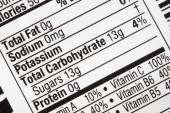Keto Diet Linked to Hypercholesterolemia, Higher ASCVD Risk
Observational data can’t prove causation, but they do make a compelling case for harm with high-animal-fat, low-carb diets.

NEW ORLEANS, LA—Bad news for devotees of popular “Keto” low-carb, high-fat (LCHF) diets: a prospective analysis confirms that this eating pattern is associated with significant increases in LDL cholesterol levels, and also, more worryingly, an increase in adverse cardiovascular events.
“Hypercholesterolemia occurring during a LCHF diet should not be assumed to be benign,” said Iulia Iatan, MD, PhD (St. Paul’s Hospital, Vancouver, Canada), who presented the results of the study here during a featured clinical research session at the American College of Cardiology/World Congress of Cardiology (ACC/WCC) 2023 meeting.
LCHF diets that induce ketosis by relying on a higher consumption of proteins and fats and lower intake of carbohydrates have surged in popularity, with proponents reporting beneficial effects on obesity, diabetes, and epilepsy, said Iatan. In 2021, 16% of American adults said they were following an LCHF diet, and the term “keto” generates well over 3 million monthly internet searches worldwide, she noted. That’s almost twice the number of searches for Weight Watchers, the next most-Googled diet.
But several case reports have shown that following these diets leads to an increase in cholesterol levels across a range of populations, including highly trained athletes, leading some to conclude that hypercholesterolemia may not be as harmful in people who adhere strictly to a ketogenic diet.
“There’s a perception among patients and some members of the public that even though LDL increases, that that is somehow not something you need worry about, because it’s part of the expected metabolic adaptation to the diet,” senior author Liam R. Brunham, MD, PhD (St. Paul’s Hospital), told TCTMD. “What we’re showing is that this is probably not something you can ignore.”
Keto Consequences
For the study, Iatan, Brunham, and colleagues turned to the prospective, population-based UK Biobank, extracting roughly a decade’s worth of information on diet, estimated nutrient intake, and blood samples. Ultimately, 1,525 participants (mean age 54; 73% women; > 90% white) were included in an analysis matched by gender 4:1—1,220 subjects following a standard eating pattern and 305 following an LCHF diet.
Hypercholesterolemia occurring during a LCHF diet should not be assumed to be benign. Iulia Iatan
Based on self-reported intake, participants eating a standard diet typically consumed more calories: 1,992 kcal/day as compared to 1,450 kcal/day in the LCHF group. As expected, mean carbohydrate intake, expressed as a percentage of daily intake, was halved in the LCHF group, while protein and fat percent intake was considerably higher, and—notably—was much more concentrated on animal sources. Mean percent cholesterol intake made up less than 0.1% of total daily intake in the standard-diet participants, but 0.31% in the LCHF group.
Over follow-up, LDL cholesterol levels remained lower (3.64 vs 3.80 mmol/L; P = 0.004) and triglycerides higher (1.53 vs 1.34 mmol/L; P < 0.001) in the standard-diet group as compared with the LCHF group. Total cholesterol, non-HDL cholesterol, and apolipoprotein B were also significantly elevated in the LCHF group.
Also higher were incident atherosclerotic cardiovascular disease (ASCVD) events among the LCHF eaters. Over up to 11 years of follow-up, 9.8% of the LCHF group and 4.3% of those eating a standard diet had an incident ASCVD event (P < 0.001), an observation that remained after adjusting for common CVD risk factors such as diabetes, smoking, obesity, and hypertension.
In an intriguing additional analysis stratified by LDL cholesterol levels, LCHF participants with the highest cholesterol levels (> 5 mmol/L) faced a risk of ASCVD more than six times higher than that of eaters of a standard diet who had LDL cholesterol levels lower than 3.5 mmol/L. But of note, standard-diet participants with cholesterol levels in that same > 5 mmol/L range did not have a significantly increased risk of ASCVD.
Food for Thought
The study cannot prove causation, Iatan stressed: the data were analyzed retrospectively and the study relied on self-reported nutrient intake, was relatively small, and was limited to a predominantly white patient cohort.
“Overall, though, based on the results of our primary and secondary endpoints, we show that in a population-based cohort of British descent, habitual consumption of a self-reported low-carb, high-fat diet was associated with increased LDL cholesterol, increased ApoB levels, and an increased risk of incident ASCVD events,” Iatan concluded.
This does raise a flag that there should be something to worry about if your LDL is going through the roof. Liam Brunham
Brunham pointed out that there are no prospective, randomized trials of ketogenic diets addressing the impact on lipid profiles and cardiovascular disease. “This does fill a gap in our knowledge. Our study shows that at the very least, there is reason to believe that this dietary pattern can increase cardiovascular risk,” he said. “The message for people who are on this diet, or for physicians with patients on this diet, is that we should be monitoring lipid levels closely, and if they do develop severe hypercholesterolemia, we should pay close attention to their cardiovascular risk factors and consider perhaps moving away from this diet.”
That’s not always easy, he added. “Some people feel very strongly about this diet and some patients will tell me that they feel great on this diet—‘I have more energy, more mental clarity, I’ve lost weight.’ So we try to work with patients around their preferences, but this does raise a flag that there should be something to worry about if your LDL is going through the roof.”
Alison Bailey, MD (Centennial Heart, Chattanooga, TN), discussing the trial after its main tent presentation, observed: “I, like you, see many patients who believe they are improving their health by following a low-carb, high-fat diet, so I think this puts a lot of data into our hands to suggest otherwise.”
One unanswered question is whether patients who manage to lose a lot of weight on this diet, or who are able to trim back their triglyceride levels, see gains that might offset the hypercholesterolemia that was the focus of this study—a question raised by Bailey. In response, Iatan said that they did not, in their study, find one group that appeared to fare better than any other on the LCHF diet. It might well be, she said, that patients who lose a lot of weight might be deriving some benefit, but “we don’t know that yet.”
Commenting on the study for TCTMD, Alice Lichtenstein, DSc (Tufts University, Boston MA), chair of the American Heart Association’s 2021 Dietary Guidance to Improve Cardiovascular Health, pointed to other unanswered questions.
“The outcome of long-term consumption of a keto/low-carb diet likely depends on the type of foods, hence the type of fat, that predominates,” she said in an email. “If animal fat—meat and milk fat—predominates, it is not surprising there was an association with higher CVD risk. Given LDL cholesterol levels were higher, that is likely the case in this study.”
On the other hand, she continued, “if a person decides to follow a keto/low-carb diet and gets their fats predominantly from plant sources, plant oils, nuts, and seeds, it is very possible the results [would] be different.” A recent paper in Diabetes Care focused on people with type 2 diabetes adhering to diets rich in plant-based fats and proteins supports that hypothesis, she added.
Shelley Wood was the Editor-in-Chief of TCTMD and the Editorial Director at the Cardiovascular Research Foundation (CRF) from October 2015…
Read Full BioSources
Iatan I. Association of a low-carbohydrate high-fat diet with plasma lipid levels and cardiovascular risk in a population-based cohort. Presented at: ACC/WCC 2023. New Orleans, LA. March 5, 2023.
Disclosures
- Iatan reports no relevant conflicts of interest.





Comments